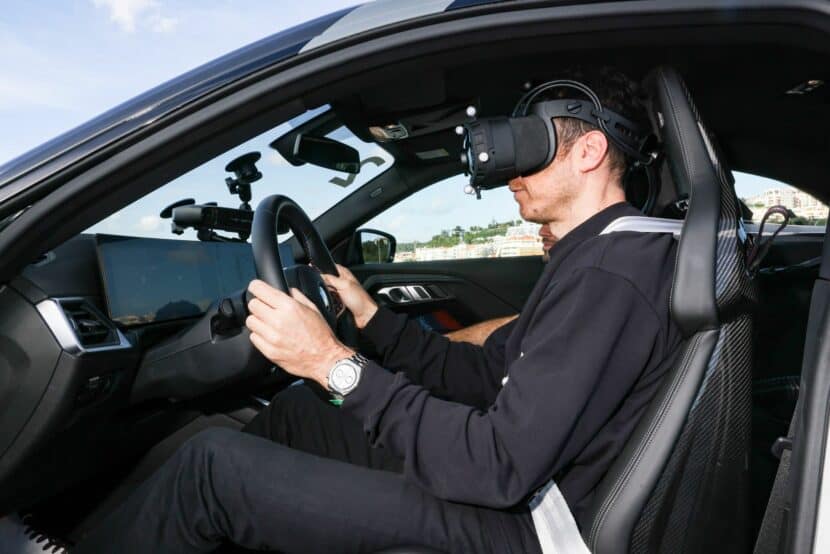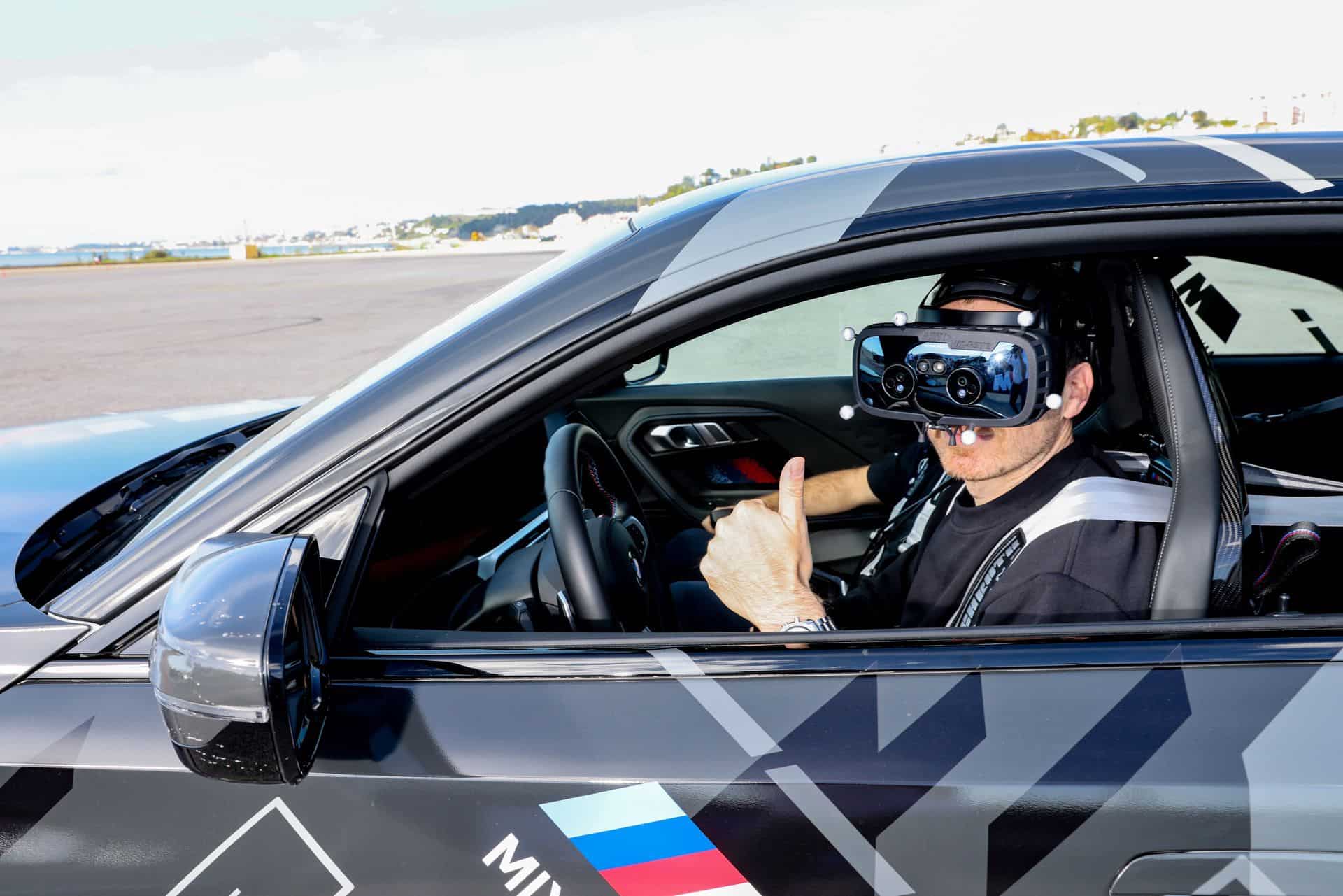BMW is continuing its transition further and further into the Ultimate Technology Machine, as it partners with Meta to create in-car extended reality. Extended reality (XR) sounds like a technology the villain would use in a Phillip K. Dick novel to see the warp the minds of the innocent. However, in upcoming BMWs, ER is going to provide passengers with additional cabin experiences while on the move.
A few luxury cars already have augmented reality (AR) technology built into their infotainment systems. Mercedes was the first brand to introduce an AR navigation display, which overlayed turn-by-turn navigation instructions onto a camera feed of the road ahead, showing the driver exactly where to turn. BMW now does something similar. However, this would go beyond that.
While drivers obviously can’t wear virtual reality (VR) goggles in a car, VR headset technology was used to help create BMW/Meta’s ER tech. To accurately display virtual graphics inside of a car in real time, and track the driver’s vision, it BMW and Meta needed to work together to create a system that monitored both the driver’s head movements and those of the car. If you wear a normal VR headset in a car (which is unbelievably dangerous, do NOT do that), the headset act wonky because it’d be not only picking up the motion of the the wearer but also the car. So BMW and Meta worked together to add the sensor date from the car’s motion to the XR system, so it can work properly. It’s how BMW recently created a VR game that could be plated with a BMW, which obviously isn’t ready for production.

It seems that BMW and Meta want to start with AR glasses and then potentially move onto full AR head up displays covering the entire windshield.
“Our research prototype shows that we can enable entertaining and comfortable passenger experiences that are anchored to the car itself, including VR and MR gaming, entertainment, productivity, and even meditation capabilities. The technology has the potential to transform how we can safely interact with our environment while traveling, and as we progress into reliable world-locked content on the road to AR glasses, we’re hopeful it will be possible for passengers to see things like markers for landmarks, restaurants, places of interest, and more.” said Richard Newcombe, Vice President of Research Science, Meta Reality Labs Research.
BMW doesn’t have any specific use-cases for its XR to mention at the moment but rest assured that BMW will figure out how to make a gimmick out of it.
“It is too early to tell exactly how or when this technology will make it into customers’ hands, but we envision a number of potential use cases for XR devices in vehicles — from assisting the driver in locating their car in a crowded parking lot to alerting them to hazards on the road and surfacing important information about the vehicle’s condition. The implications of future AR glasses and VR devices — for passengers as well as drivers — are promising. The research partnership with Meta will allow us to discover what immersive, in-vehicle XR experiences could look like in the future and spearhead the seamless integration of such devices into cars.” said Claus Dorrer, Head of BMW Group Technology Office USA in Mountain View.


















































